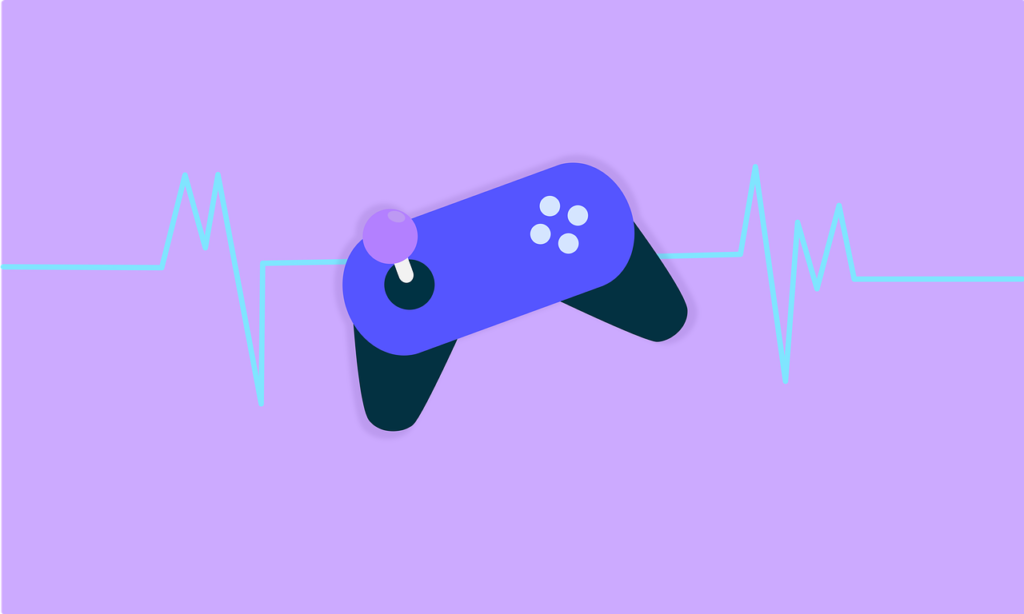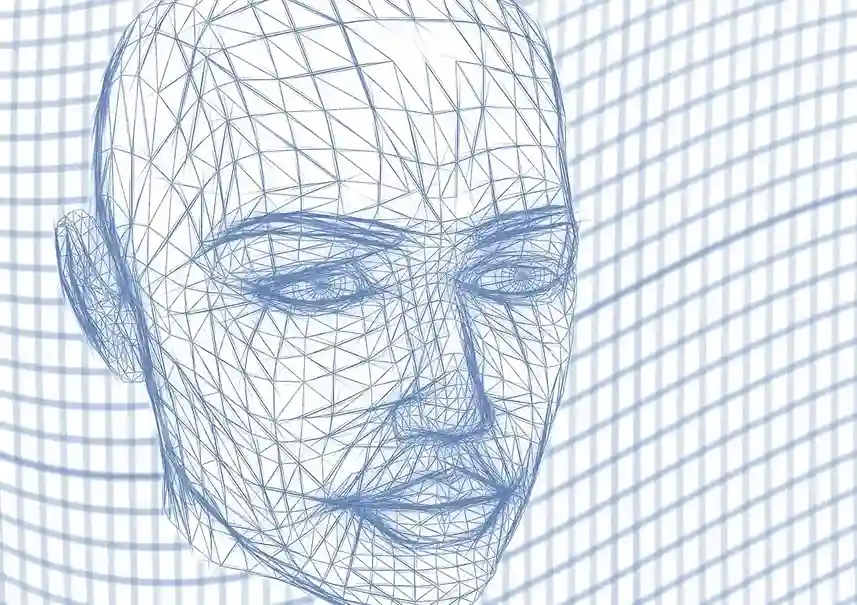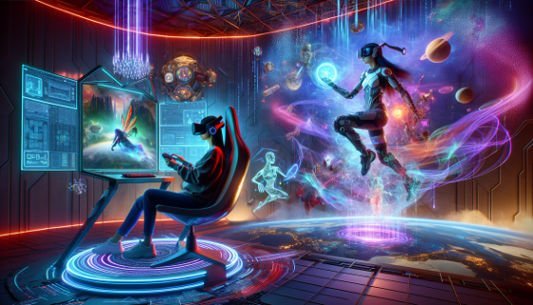Artificial intelligence is revolutionizing the gaming industry, transforming both gameplay and development processes. AI in gaming has become a game-changer, enhancing player experiences and pushing the boundaries of what’s possible in interactive entertainment. From creating more lifelike non-player characters to generating dynamic game worlds, AI technologies are reshaping how games are designed, played, and enjoyed.
The application of AI in gaming spans various aspects of the industry. It has an impact on game design, allowing developers to create more intricate and responsive game environments. AI also plays a crucial role in improving player experiences, offering personalized gameplay and adaptive difficulty levels. Additionally, generative AI in gaming is opening up new possibilities for content creation and storytelling. As we delve into this topic, we’ll explore the advantages and challenges of AI in gaming, examine real-world examples, and consider the future prospects of this rapidly evolving field.
AI-Driven Game Design and Development

AI has become a game-changer in the gaming industry, revolutionizing both design and development processes. It has an impact on various aspects, from creating vast, procedurally generated worlds to streamlining testing procedures.
Procedural Content Generation
Procedural content generation (PCG) allows developers to create algorithms that design new weapons, characters, dungeons, and entire worlds. Games like No Man’s Sky and Elite: Dangerous showcase this technology, offering players millions of unique planets to explore. PCG enables the creation of near-infinite content without relying on manual design, solving storage issues and enhancing replayability.
Automated Testing and Debugging
AI-driven automated testing has transformed quality assurance in game development. Machine learning algorithms and neural networks can detect bugs, analyze code for vulnerabilities, and ensure gameplay mechanics work as intended. This approach speeds up testing processes and enhances accuracy. AI systems can also monitor games in real-time, providing immediate insights into performance and facilitating timely decision-making.
AI-Assisted Level Design

AI-generated worlds are revolutionizing level design. These environments are created using machine learning and neural networks, analyzing player behavior to produce engaging and personalized experiences. This technology significantly reduces development time and resources, allowing designers to focus on storytelling and gameplay mechanics. The future of game design lies in a harmonious collaboration between AI and human designers, pushing the boundaries of creativity and immersion.
Enhanced Player Experience through AI
AI has revolutionized the gaming industry, enhancing player experiences in numerous ways. Through adaptive difficulty, personalization, intelligent NPCs, and dynamic storytelling, AI has transformed how players interact with games.
Adaptive Difficulty and Personalization
AI-driven systems monitor player performance in real-time, adjusting difficulty levels to maintain an optimal challenge. This ensures players remain engaged without becoming frustrated or bored. Additionally, AI tailors content to individual preferences, creating custom levels, missions, and challenges. This personalization extends to game mechanics, optimizing elements like enemy behavior and item placement for a more immersive experience.
Intelligent NPCs and Believable Characters
AI has significantly improved NPC behavior, making game worlds feel more alive and realistic. NPCs now have daily routines, react to player actions, and display emotions. In games like “Red Dead Redemption 2,” NPCs form relationships with players based on interactions, adding depth to the gaming experience. AI-powered NPCs can also adapt their tactics, providing a continually evolving challenge.
Dynamic Storytelling and Narrative Generation
AI has transformed storytelling in games, creating dynamic, evolving narratives that respond to player choices. This technology allows for branching storylines, multiple endings, and personalized plot developments. AI analyzes player behavior to tailor narrative elements, enhancing immersion and player agency. Games like “The Elder Scrolls V: Skyrim” use AI to generate radiant quests, ensuring each playthrough offers a unique experience.
Challenges and Future Prospects
Balancing AI and Human Creativity
AI has become a valuable creative partner in game development, offering suggestions and generating ideas that might not be immediately apparent to human designers. By analyzing vast datasets and identifying patterns, AI can inspire new game mechanics, storylines, and artistic styles. However, the human touch remains irreplaceable in curating these ideas and infusing them with emotional depth and cultural relevance.
Ethical Considerations in AI Gaming
The ethical implications of AI in gaming require careful consideration. It’s crucial to ensure that AI-driven processes and decisions are transparent, fair, and accountable. This calls for a collaborative approach, where AI tools are designed and monitored by diverse teams of professionals who can address potential biases and ethical concerns. The issue of transparency and consent in data collection is a central ethical concern in the gaming industry, requiring more stringent regulations and guidelines.
Emerging Trends and Technologies
AI-powered gaming in 2024 will allow gamers to enjoy more realistic perceptions of virtual worlds, customized gameplay, and natural interaction with in-game characters. The intersection of AI, virtual reality, and augmented reality is expected to see rapid movement. Techniques like Neural Radiance Field (NeRF) may prove to be a boon for generating 3D representations of objects or scenes from 2D images, opening up new possibilities for immersive gaming experiences.
Conclusion
The rapid advancement of AI in gaming has brought about a revolution in both gameplay and development. From creating more immersive worlds to enhancing player experiences, AI has become a key driver of innovation in the industry. Its influence extends to various aspects, including game design, personalized gameplay, and dynamic storytelling. As AI continues to evolve, it opens up new possibilities for creating more engaging and interactive gaming experiences.
Looking ahead, the future of AI in gaming appears promising, with emerging technologies set to push the boundaries even further. However, it’s crucial to strike a balance between AI-driven innovation and human creativity, ensuring that the essence of gaming remains intact. As the industry moves forward, addressing ethical considerations and harnessing the potential of AI responsibly will be key to shaping a future where technology enhances rather than replaces the human element in gaming.











